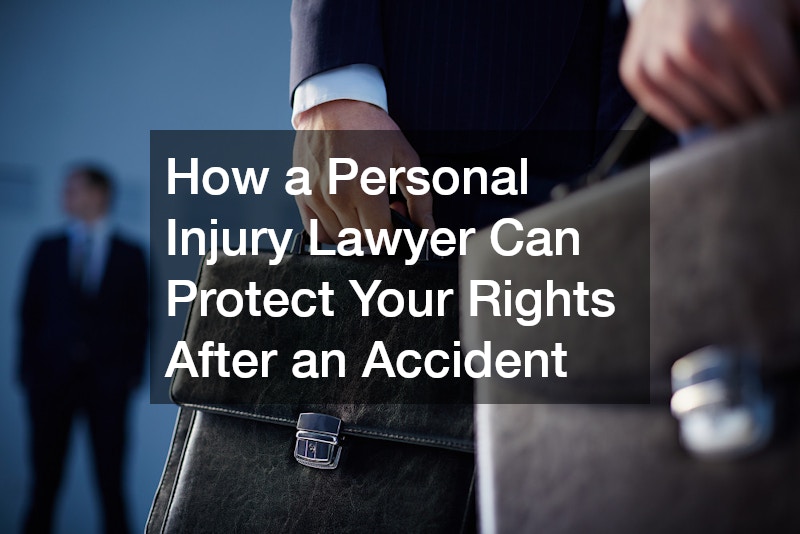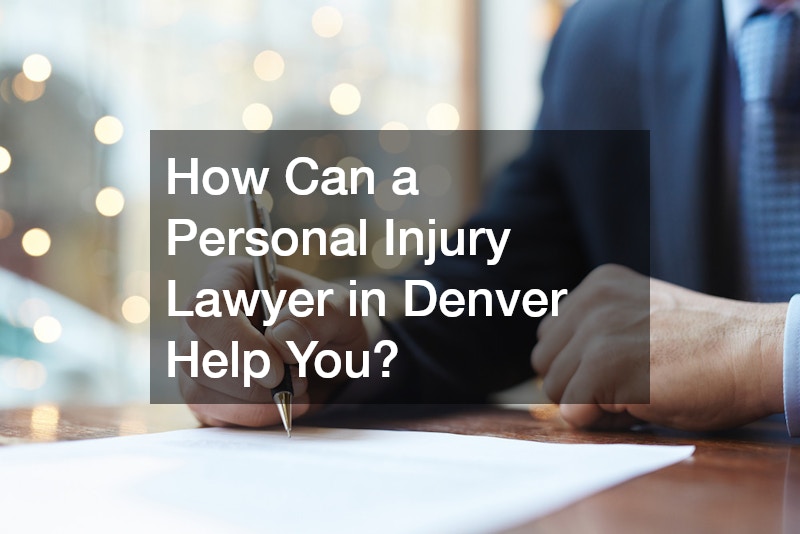
Accidents can happen in an instant, leaving victims physically injured, emotionally shaken, and financially burdened. Navigating the aftermath of an accident often involves dealing with insurance companies, medical bills, lost wages, and complex legal procedures. This is where a personal injury lawyer becomes essential. Personal injury law exists to protect individuals who have suffered harm due to someone else’s negligence, ensuring they receive fair compensation for their losses.
Engaging a skilled lawyer after an accident can make the difference between a claim that falls short and one that fully addresses your needs, safeguarding your rights and helping you recover both financially and emotionally.
What Does a Personal Injury Lawyer Do?
A personal injury lawyer is a legal professional specializing in cases where individuals suffer harm due to accidents, negligence, or intentional misconduct. Their role begins with evaluating the circumstances of your accident, determining liability, and identifying the types of damages you are entitled to claim. These damages may include medical expenses, lost income, pain and suffering, and in some cases, punitive damages intended to hold negligent parties accountable. Beyond assessing the legal aspects, they also serve as an advocate, communicating with insurance companies, negotiating settlements, and if necessary, representing you in court. Their expertise ensures that your rights are upheld at every stage, preventing insurers or opposing parties from taking advantage of your situation. By guiding you through each step of the process, they can help reduce stress and provide clarity during a challenging time.
When Should You Hire a Personal Injury Lawyer?
Timing is crucial when it comes to engaging legal representation after an accident. It is advisable to seek legal help as soon as possible, particularly if your injuries are significant, liability is disputed, or the accident involves complex circumstances such as multi-vehicle collisions, workplace injuries, or medical malpractice. Early involvement allows your legal representative to gather critical evidence, speak with witnesses, and document the full extent of your injuries while details are fresh. Taking action promptly also helps preserve important documentation and strengthens the overall credibility of your case. Additionally, legal proceedings are governed by strict statutes of limitations, meaning waiting too long could jeopardize your ability to file a claim. Even in cases where fault seems obvious, consulting an attorney ensures that your rights are protected and that you are not pressured into a settlement that fails to fully cover your losses.
How Can a Personal Injury Lawyer Maximize Your Compensation?
One of the primary benefits of hiring a personal injury lawyer is their ability to secure the maximum possible compensation for your injuries. Lawyers employ a combination of legal expertise and negotiation skills to achieve this goal. They carefully evaluate the full scope of your damages, considering not only immediate medical costs but also long-term expenses, future loss of earning capacity, and non-economic damages such as emotional distress. Personal injury lawyers have experience dealing with insurance adjusters who often aim to minimize payouts. By presenting well-documented evidence, expert testimonies, and persuasive legal arguments, your lawyer can negotiate a settlement that more accurately reflects the impact of the accident on your life. If an equitable settlement cannot be reached, they are fully prepared to take your case to trial, advocating for your rights in court.
What to Expect During the Personal Injury Claim Process?
The claim process can be complex, and having a lawyer by your side ensures that you are guided at every stage. Initially, your lawyer will investigate the accident, collecting evidence such as accident reports, medical records, and witness statements. This is followed by the drafting and submission of your claim to the responsible party or their insurance company. Negotiations typically ensue, where your lawyer will advocate on your behalf to reach a fair settlement. If a settlement cannot be agreed upon, your case may proceed to litigation, where the lawyer will represent you in court. Throughout this process, your lawyer provides clarity, explains your legal options, and manages all communications and paperwork, allowing you to focus on recovery rather than navigating the complexities of the legal system alone.
Experiencing an accident is often overwhelming, but engaging a lawyer ensures that your rights are protected and your case is handled with professionalism and expertise. From assessing liability and gathering evidence to negotiating settlements and representing you in court, a lawyer provides critical support at every stage of the claim process. Their guidance not only improves the likelihood of receiving fair compensation but also reduces the stress and uncertainty that accompany legal proceedings. By trusting a qualified lawyer, accident victims can focus on healing, confident that their legal interests are being vigorously defended and that they are positioned to achieve the best possible outcome.




